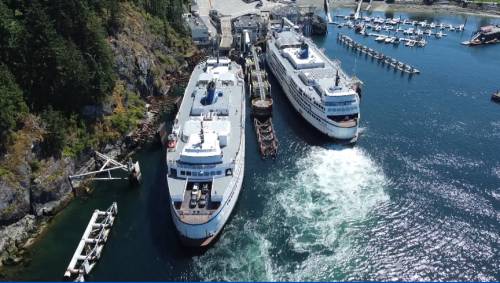In a significant development affecting coastal communities across British Columbia, the federal government has launched an investigation into BC Ferries’ controversial operational decisions, marking a rare intervention into the provincial transportation authority’s management practices.
Federal Transport Minister Pablo Rodriguez confirmed yesterday that Ottawa will examine recent service changes that have sparked widespread concern among coastal residents and businesses who depend on reliable ferry connections for essential services, tourism, and economic survival.
“We’ve heard the frustration from coastal communities loud and clear,” Rodriguez stated during a press conference in Vancouver. “When a vital transportation link makes changes that potentially impact accessibility and economic well-being, the federal government has a responsibility to ensure those decisions align with the public interest.”
The review comes after months of escalating tensions between BC Ferries and coastal communities following service reductions on several routes and significant fare increases that many locals describe as unsustainable. On Salt Spring Island, business owners report a 15% decrease in summer tourism after schedule changes reduced daily crossings by nearly a third.
The federal investigation will specifically examine whether BC Ferries’ decisions comply with Canada’s national transportation policy, which mandates that transportation services “serve the needs of its users, are continuously adapted to changing conditions, and work at the lowest total cost consistent with safety and security requirements.”
BC Ferries CEO Nicolas Jimenez defended the organization’s decisions, stating they were necessary responses to financial pressures and crew shortages. “We’re balancing fiscal responsibility with service delivery in challenging times,” Jimenez explained. “We welcome the federal review as an opportunity to demonstrate the careful consideration behind our operational changes.”
However, the Union of BC Municipalities has documented significant hardships resulting from the service changes. Their recent report indicated that 78% of coastal businesses surveyed reported negative impacts, with medical appointments being missed and fresh food deliveries delayed.
Provincial Transportation Minister Rob Fleming has maintained that while BC Ferries operates independently, the provincial government has increased subsidies by $32 million annually to mitigate service impacts. “We’re working closely with BC Ferries to ensure essential connections are maintained,” Fleming said during a legislative session last week.
The federal review will include public consultations in affected communities, beginning next month on Vancouver Island before expanding to other coastal regions. Maritime law expert Dr. Elizabeth Chen from the University of British Columbia noted that while the federal government rarely intervenes in provincial ferry operations, it holds jurisdiction over inter-provincial marine transportation under the Canada Marine Act.
As coastal residents await the outcome of this unprecedented review, the fundamental question remains: can a balance be struck between BC Ferries’ financial sustainability and the vital service it provides to communities whose very existence depends on reliable marine transportation?

























